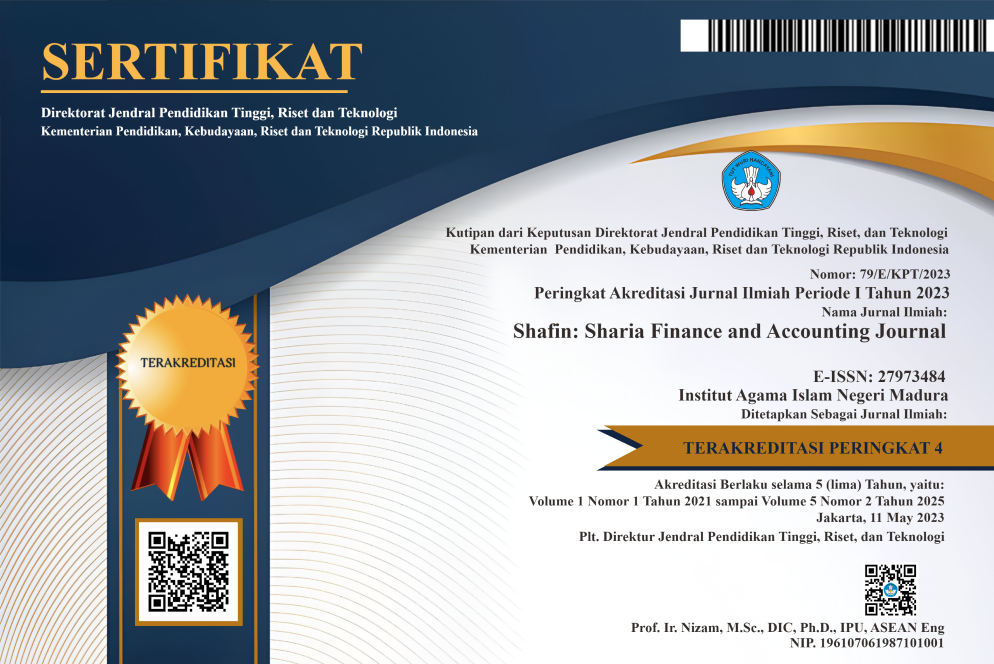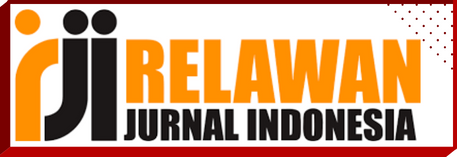Implikasi Keberadaan Goodwill Pada Laporan Keuangan (Manfaat dan Distorsi)
 Abstract views: 424
,
Abstract views: 424
,
 PDF downloads: 537
PDF downloads: 537
Abstract
This article discusses the impact of goodwill on financial statements, focusing on its benefits and distortions. Goodwill, an intangible asset arising from acquisitions where the purchase price exceeds the fair value of identifiable assets, can have a positive impact on a company's financial statements by increasing its net assets or equity. However, despite its benefits, goodwill also raises concerns, particularly about the accuracy of the recorded value. The valuation of goodwill is often based on estimates and assumptions, which increases the risk of inaccuracies in its measurement. Through a qualitative literature review, this study finds that while goodwill impairment may cause investors and stakeholders to revise their expectations of future earnings and cash flows, it may also lead to managerial opportunism, thereby reducing its reliability. To mitigate such risks, companies can improve audit quality and implement effective corporate governance practices. Finally, this study provides valuable insights into the impact of goodwill on financial reporting practices.
Downloads
References
Abughazaleh, N. M., Al-Hares, O. M., & Roberts, C. (2011b). Accounting Discretion in Goodwill Impairments: UK Evidence.
Albersmann, B. T., Friedrich, C., Hohenfels, D., & Quick, R. (2020). Goodwill impairment tests as a device for earnings management: Evidence from Germany. Corporate Ownership and Control, 18(1, Special Issue), 261–280. https://doi.org/10.22495/cocv18i1siart3
Bepari, M. K., & Mollik, A. T. (2015). Effect of audit quality and accounting and finance backgrounds of audit committee members on firms’ compliance with IFRS for goodwill impairment testing. Journal of Applied Accounting Research, 16(2), 196–220. https://doi.org/10.1108/JAAR-05-2013-0038
Elmahgoub, M., Smith, J., Elamer, A. A., & Abdelfattah, T. (2022). Extended audit reporting and financial reporting quality: The case of goodwill impairment. https://doi.org/Elmahgoub, Mohamed and Smith, Julia A and Elamer, Ahmed Ahmed and Abdelfattah, Tarek, Extended Audit Reporting and Financial Reporting Quality: The Case of Goodwill Impairment (April 8, 2019). Available at SSRN: https://ssrn.com/abstract=3995701 or http://dx.doi.org/10.2139/ssrn.3995701
Ferramosca, S., & Allegrini, M. (2021). Impairment or amortization of goodwill? An analysis of CFO perceptions of goodwill accounting. European Management Journal, 39(6), 816–828. https://doi.org/10.1016/j.emj.2021.03.001
Francis, J. R., Maydew, E. L., & Sparks, H. C. (1999). The Role of Big 6 Auditors in the Credible Reporting of Accruals. In Auditing: A Journal of Practice & Theory (Vol. 18, Issue 2).
Godfrey, J. M., & Koh, P. S. (2009). Goodwill impairment as a reflection of investment opportunities. Accounting and Finance, 49(1), 117–140. https://doi.org/10.1111/j.1467-629X.2008.00272.x
Gros, M., & Koch, S. (2020). Discretionary goodwill impairment losses in Europe. Journal of Applied Accounting Research, 21(1), 106–124. https://doi.org/10.1108/JAAR-03-2018-0039
Huikku, J., Mouritsen, J., & Silvola, H. (2017). Relative reliability and the recognisable firm: Calculating goodwill impairment value. Accounting, Organizations and Society, 56, 68–83. https://doi.org/10.1016/j.aos.2016.03.005
Illahi, I. (2019). Fenomena Manajemen Laba Pada Perbankan Syariah di Indonesia dan Tindakan Mitigasinya.
Illahi, I., Sumarni, N., & Maiza, Z. (2023). Transfer pricing and tax avoidance: Moderating role of audit quality. JIFA (Journal of Islamic Finance and Accounting), 5(2), 89–97. https://doi.org/10.22515/jifa.v5i2.6537
Li, Z., Shroff, P. K., Venkataraman, R., & Zhang, I. X. (2011). Causes and consequences of goodwill impairment losses. Review of Accounting Studies, 16(4), 745–778. https://doi.org/10.1007/s11142-011-9167-2
Madsen, D. Ø. (2016). Goodwill Impairment Losses, Economic Impairment, Earnings Management and Corporate Governance Tonny Stenheim BI Norwegian Business School. https://ssrn.com/abstract=2890472
Nom, H., & Riedl, E. J. (2003). An Examination of Long-Lived Asset Impairments. http://ssrn.com/abstract=467463
Pajunen, K., & Saastamoinen, J. (2013). Do auditors perceive that there exists earnings management in goodwill accounting under IFRS?: Finnish evidence. Managerial Auditing Journal, 28(3), 245–260. https://doi.org/10.1108/02686901311304367
Schatt, A., Doukakis, L., Bessieux-Ollier, C., & Walliser, E. (2016). Do Goodwill Impairments by European Firms Provide Useful Information to Investors? Accounting in Europe, 13(3), 307–327. https://doi.org/10.1080/17449480.2016.1254348
Sohyung Kim, C. L. S. W. Y. (2012). goodwill-accounting-and-asymmetric-timeliness-of-earnings. Review of Accounting and Finance.
Tri Wahyuni, E., Dewantoro, D., & Avianti, I. (2018). Has Goodwill Become More Relevant After IFRS Convergence in Indonesia? Journal of Accounting and Investment, 19(2). https://doi.org/10.18196/jai.1902104
Wang, C., & Hu, T. (2023). An Empirical Analysis of Corporate Governance and Earnings Management Motives Influencing Goodwill Impairment in Chinese Manufacturing Firms. Acadlore Transactions on Applied Mathematics and Statistics, 1(2), 51–65. https://doi.org/10.56578/atams010201
Wen, H., & Moehrle, S. R. (2016). Accounting for goodwill: An academic literature review and analysis to inform the debate. Research in Accounting Regulation, 28(1), 11–21. https://doi.org/10.1016/j.racreg.2016.03.002
The journal operates an Open Access policy under a Creative Commons Non-Commercial Share-Alike license. All articles published Open Access will be immediately and permanently free for everyone to read and download.
• Creative Commons Attribution-NonCommercial (CC-BY-NC)

Shafin: Finance and Sharia Accounting Journal by http://http://ejournal.iainmadura.ac.id/index.php/shafin is licensed under a Creative Commons Attribution-NonCommercial 4.0 International License.
Based on a work at http://ejournal.iainmadura.ac.id.















